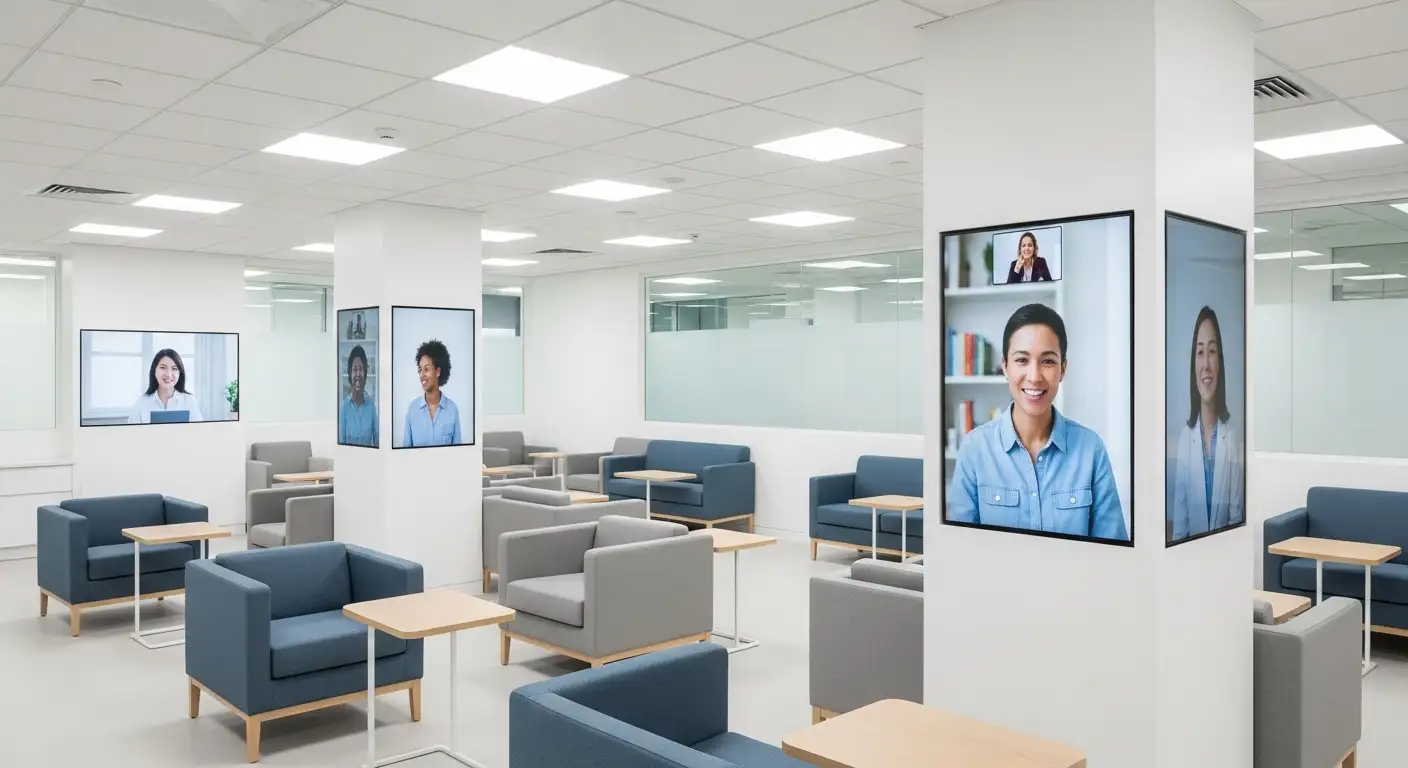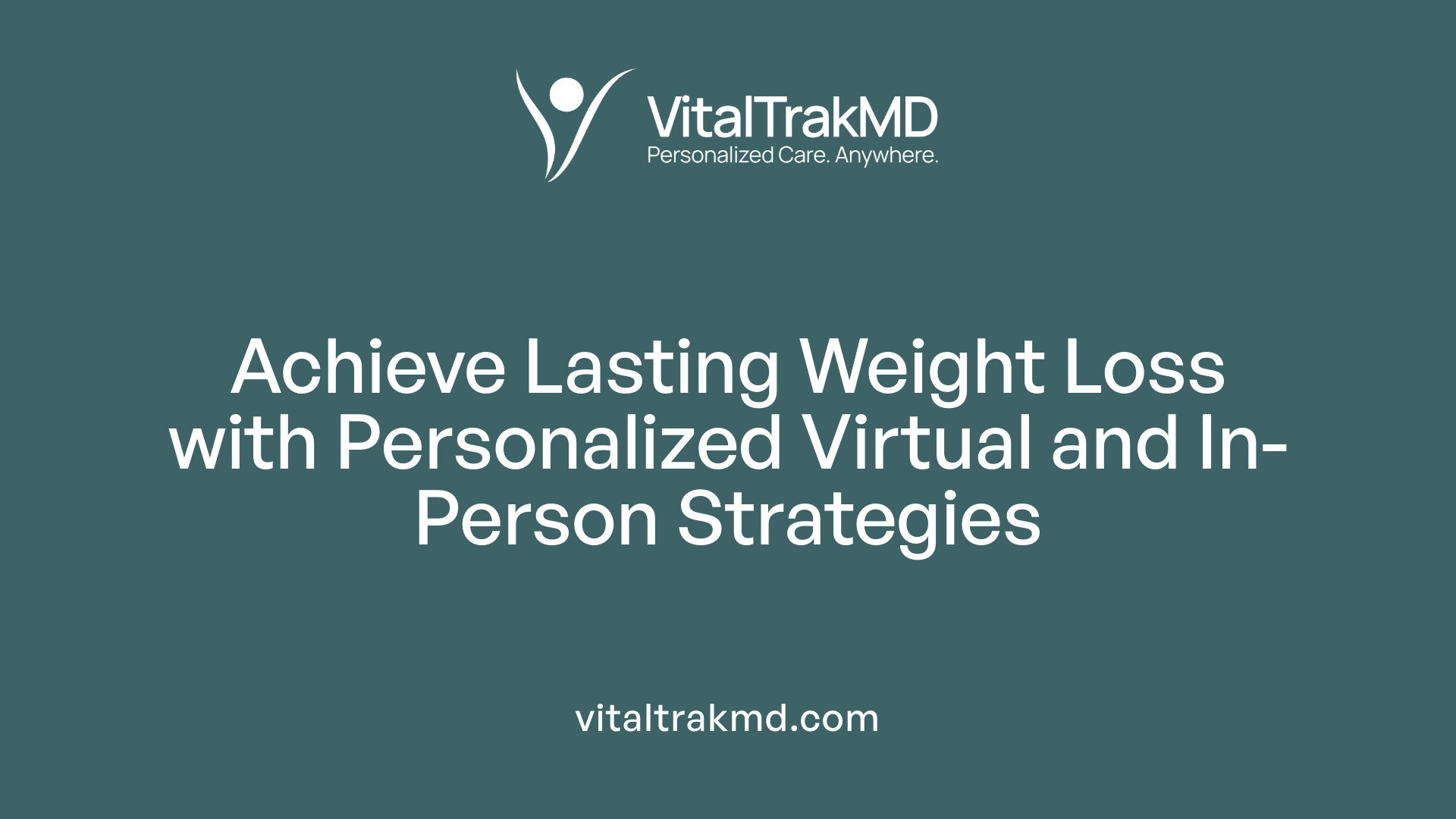The Role of Hybrid Care in Reducing Stress From Complex Health Management

Understanding the Hybrid Care Model
Managing complex health needs often generates significant stress for patients and caregivers. Hybrid care, which merges virtual health services with traditional in-person care, is emerging as a vital strategy to alleviate these burdens. This innovative approach not only improves access to healthcare providers but also enhances monitoring, supports wellness and chronic disease management, and fosters continuity of care through flexible delivery methods tailored to individual patient needs. This article explores how hybrid care can effectively reduce stress associated with complex health management and improve overall outcomes.
Comprehensive Wellness Programs Enhanced by Hybrid Care

What are the most effective wellness programs for overall health improvement?
Effective wellness programs embrace a comprehensive approach, targeting physical, mental, and organizational well-being. These programs blend fitness options such as exercise classes and gym access, with nutrition education and preventive health services including screenings and vaccinations.
Mental health support is a vital component, often integrating counseling services and stress reduction strategies. Policies like flexible work schedules and work-life balance initiatives further promote a healthier work environment.
How does the integration of digital tools enhance wellness initiatives?
The incorporation of digital tools into wellness programs significantly improves accessibility and personalization. Hybrid care models, which combine virtual and in-person options, allow participants to engage in health coaching and assessments remotely.
Wearable devices and telehealth consultations enable real-time monitoring and tailored feedback, helping individuals manage chronic conditions or adjust lifestyle habits effectively. This integration fosters continuous engagement beyond traditional office hours.
What benefits come from personalized coaching and health assessments?
Personalized coaching empowers participants by addressing their unique goals and health statuses. Regular assessments provide measurable feedback, allowing for adjustments in diet, exercise, or stress management techniques.
Such targeted support improves adherence to wellness plans, enhances motivation, and results in better health outcomes. Hybrid care platforms support these personalized experiences through virtual check-ins and educational resources.
How does mental health support and stress reduction fit into wellness programs?
Mental health services, including telepsychiatry and virtual counseling, complement physical health efforts within hybrid wellness programs. These services increase convenience and immediate access, especially benefiting individuals with anxiety, PTSD, or avoidance behaviors.
Stress reduction techniques and supportive communication through remote or in-person channels improve overall well-being and productivity. Maintaining a strong therapeutic relationship through hybrid care ensures that the emotional and psychological needs of participants are adequately addressed.
Sustainable Weight Loss Through Virtual and In-Person Support

What strategies are proven to support sustainable weight loss?
Sustainable weight loss is best achieved through long-term lifestyle changes rather than quick fixes. Proven strategies include following a balanced diet rich in nutrients—such as the Mediterranean or plant-based diets—and regularly engaging in both aerobic and strength training exercises. Setting realistic goals, like losing 1-2 pounds per week, helps maintain motivation and progress.
Managing stress, getting enough sleep, and seeking emotional support from healthcare professionals, family, or friends also play vital roles in adherence and overall well-being. Avoiding extreme diets by embracing a steady, gradual approach makes long-lasting changes more attainable.
How do personalized weight loss plans via virtual care work?
Virtual Medical Weight Loss programs, like those offered by LifeBridge Health's Center for Virtual Care, provide users with personalized plans tailored to their unique needs. These programs integrate nutritional guidance, medication options, and ongoing virtual support from healthcare providers.
Through telehealth platforms, patients can receive customized advice and treatment adjustments without needing frequent in-person visits. This flexible approach increases accessibility and helps patients stay consistent with their weight loss journey.
Why integrate nutritional guidance, medication, and exercise?
Successful weight loss is multifaceted, requiring combined efforts in diet, exercise, and sometimes medication. Nutritional guidance helps patients understand healthy food choices and portion control, while physical activity promotes calorie burning and builds muscle.
In some cases, medication can support metabolic function or control appetite, making it easier to adhere to lifestyle changes. Bringing these components together ensures a comprehensive and effective approach.
What role does emotional support and stress management play?
Weight loss efforts are often influenced by mental health and emotional well-being. Stress can trigger unhealthy eating habits or reduce motivation to exercise. Incorporating emotional support through virtual check-ins or counseling helps patients cope with challenges that arise.
Stress management techniques such as mindfulness, relaxation exercises, and regular communication with care providers empower patients to stay on course. The hybrid care model promotes these elements by combining virtual accessibility with in-person interaction when needed.
| Aspect | Virtual Care Role | In-Person Care Role |
|---|---|---|
| Nutritional Guidance | Remote consultations and tailored meal planning | Hands-on assessments and cooking demonstrations |
| Exercise | Virtual coaching and activity tracking | Supervised physical training sessions |
| Medication Management | Remote monitoring and medication adjustments | Physical exams and lab work |
| Emotional Support & Stress Management | Teletherapy and virtual support groups | Face-to-face counseling and crisis intervention |
Hybrid Care’s Role in Managing Chronic Health Conditions

How do care programs contribute to managing chronic health conditions?
Care programs play a vital role in managing chronic health conditions through coordinated, team-based approaches. These involve a range of healthcare professionals—including physicians, nurses, pharmacists, and social workers—working together to create personalized treatment plans. These plans take patient preferences into account and emphasize education, self-management, and behavioral support to enhance adherence and improve outcomes.
Remote patient monitoring and early detection
Remote Patient Monitoring (RPM) is an essential component of hybrid care for chronic disease. Patients with conditions such as hypertension, chronic obstructive pulmonary disease (COPD), or heart failure can share vital health data remotely. This continuous monitoring allows clinicians to detect problems early and adjust treatments promptly, reducing complications and hospital readmissions.
Personalized treatment plans incorporating patient input
Programs such as Virtual Diabetes Management and Virtual Medical Weight Loss use tailored plans created with direct input from patients. These include nutritional guidance, medication options, and real-time adjustments to therapy by nurse practitioners. Patients actively participate, empowering them to manage their health more effectively.
Benefits of continuity and access through virtual and in-person care
Hybrid care models blend virtual and in-person visits, enhancing continuity and access. Virtual primary care and eVisits provide convenient management for common ailments and chronic conditions, reducing waiting times and transportation barriers. Post-discharge support ensures smooth recovery and helps avoid readmissions by maintaining close follow-up.
This comprehensive hybrid approach fosters team coordination, early intervention, personalized care, and improved access—resulting in better health outcomes, fewer hospitalizations, and a higher quality of life for patients with chronic illnesses.
Innovations Driving Hybrid Care Delivery

Use of Technology Platforms for Virtual and Remote Care
Healthcare organizations are increasingly leveraging purpose-built, customizable digital solutions to create seamless hybrid care experiences. Platforms like Caregility Cloud connect experienced retired nurses with bedside staff, enriching nursing support and mentorship in real time. Smaller practices deploy virtual platforms for primary, urgent, and behavioral health services, expanding patient access while managing operational costs effectively.
Role of Remote Monitoring Devices and Apps
Remote Patient Monitoring is a cornerstone of the hybrid care model, particularly for chronic conditions such as hypertension, COPD, and heart failure. Patients use wearables, smartphone apps, and other digital devices to share vital signs and health data remotely. This continuous monitoring enables early detection of health issues and supports post-discharge follow-up, helping maintain recovery trajectories and reduce readmission risks.
Telemedicine in Urgent and Emergency Care
Telemedicine platforms are revolutionizing urgent and emergency care delivery. ExpressCare Urgent Care Telemedicine offers swift access to providers for non-life-threatening conditions, decreasing unnecessary ER visits. In emergency settings, 5G-enabled tablets facilitate remote consultations and specialist input during patient transport and on-site, enhancing triage accuracy and timely interventions.
Support for Nursing Staff Through Digital Mentorship
Digital mentorship initiatives address nursing shortages by connecting veteran nurses with frontline staff through cloud-based platforms. This virtual collaboration provides immediate support, advice, and education, easing workload challenges and reducing staff burnout. Such innovative approaches bolster workforce resilience and improve overall patient care quality.
Balancing Virtual and In-Person Mental Health Care
How Is Telepsychiatry Integrated with Traditional Care?
Hybrid mental health care blends telepsychiatry with face-to-face sessions using technology such as videoconferencing, email, and phone calls. This allows for flexible communication and extends care beyond the office.
What Are the Benefits for Patients with Anxiety and PTSD?
Patients dealing with avoidant behavior, PTSD, or anxiety particularly benefit from the convenience and immediate access virtual care offers. It reduces barriers like travel stress and offers a comfortable environment for therapy.
How Are Therapeutic Relationships Maintained?
Despite virtual components, the traditional in-person meeting remains crucial for building trust and immediacy in care. Hybrid models aim to strengthen these bonds by balancing virtual check-ins with physical visits to support continuity.
What Are Important Considerations for Effective Hybrid Mental Health Delivery?
Implementing hybrid care involves navigating regulatory, legal, and technological challenges. Providers need adaptable, integrated digital solutions. Resources such as the APA's guide on hybrid psychiatry help ensure ethical and effective practice.
This balanced approach allows providers to observe patients in their own environments and offer care outside typical office hours, enhancing both patient comfort and treatment outcomes.
Empowering Patients and Providers Through Hybrid Care
Hybrid care represents a transformative approach to tackling the complexities of modern health management. By combining the accessibility and convenience of virtual care with the trust and effectiveness of in-person treatment, it reduces patient stress, enhances wellness and chronic disease management, and supports sustainable lifestyle changes. Technological innovations and team-based strategies ensure that healthcare delivery remains adaptable, patient-centered, and efficient. As healthcare systems continue to adopt hybrid models, patients gain greater control and confidence in managing their health, paving the way for improved outcomes and a better quality of life.
References
- How the Hybrid Care Model is Transforming Patient Access
- Healthcare's Future Is a Hybrid Model
- Hybrid Models of Care
- 10 Examples of Health and Wellness Programs in the ...
- 9 Employee Well-being Programs From the 100 Best ...
- Designing and Managing Effective Wellness Programs
- Weight loss: 6 strategies for success
Recent articles
Want to Feel Better and Live Healthier?
Join hundreds of patients taking control of their health with personalized care that fits their life – not the other way around.
Rated 4.8/5 by 32+ customers







